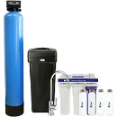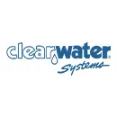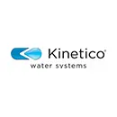Non-Electric Water Softeners
A non-electric water softener works more on a throughflow model. It differs from an automatic timer that triggers the cleansing cycle.
By Customer Feedback
- Iron in water causes real damage.
- Most reliable, quick, and cost-effective methods
- Centralize your filtration needs with countertop systems
- The best solution if your house does not have access to electricity
- Remove harmful chemicals and minerals from water
- 20 years of experience in the industry
- The perfect solution for saving your bathroom appliances and pipelines
- Spend less time cleaning your Bathroom
- The guaranteed life expectancy of more than 10 to 15 years
- Keep yourself and your family healthy with purified water
- Advanced technologies that meet the need for pure water
- Get pure water every time you turn on your tap
- Avoids hard water damage to your clothing while softening and retaining
- It prevents mineral stains on glassware
- Keeping pipes, fixtures, and water heaters clear of mineral deposits
- It's low-maintenance and straightforward to set up
- Catalytic carbon of the finest grade is used in the system
- Patented 4-step design that maximizes filtration media contact time
- Electric shocks are eliminated
- Mechanically controlled water softener.
- Automatically regulates bringing, backwashing, rinsing, and shifting.
Avail The Best Water Softeners That Can Save On Your Power Bills
A non-electric water softener works with two tanks conjoined by a module. Non-Electric softener regulates backwashing, shifting, and rinsing from one tank to another.
As the name suggests, the water softener works without electricity. As one cylinder regenerates the other, the cycle keeps producing softener liquid. A non-electric water softener works to make water soft. It makes soft water available to users around the clock.
Information On Non-Electric Water Softener
Unlike an electric water softener, a non-electric water softener uses a meter to track the volume of water. It works as the liquid flows through the system. In general, a water softener for bathrooms has two tanks that get conjoined by a module.
It softens the water needed by the consumer. A non-electric softener uses two tanks to produce on-demand soft water 24 hours a day. Hence, a non-electric softener works to make soft water available round the clock.
How does a non-electric water softener work?
A non-electric water softener makes use of two tanks joined by a single module. It regulates shifting and rinsing from one tank to another. It works when enough water passes through it.
As mentioned earlier, parts of a non-electric water softener work under pressure. It removes hardness with an ion exchange process. A mechanical water softener likewise removes iron and manganese ions. Iron ions cause hardness in water.
How can you buy the best non-electronic water softener?
If you want to buy the best non-electric water softeners available, learn how to factor in a softener. Capacity or the amount of softening is one of the factors considered when buying a non-electronic water softener for hard water. Likewise, you need a non-electronic water softener that is easy to install. Be sure to read product reviews when you buy the best non-electric water softener.
Pros of a non-electric water softener
- A non-electronic water softener is suitable for small and medium-scale families.
- A non-electronic water softener provides you with a green solution.
- It protects and prolongs the lifespan of water fixtures.
Conclusion
The best part of using a non-electric water softener is that it has less water and salt in regeneration. A non-electric water softener works on different mechanisms for conditioning and softener water. Mechanical water softener addresses the issues of electric water softeners that work on the timer. A non-electric water softener works a long way to measure the volume of water used once.
Trusted, Safe & Secure
Helping Millions of Users Make Smarter Purchases Online.






